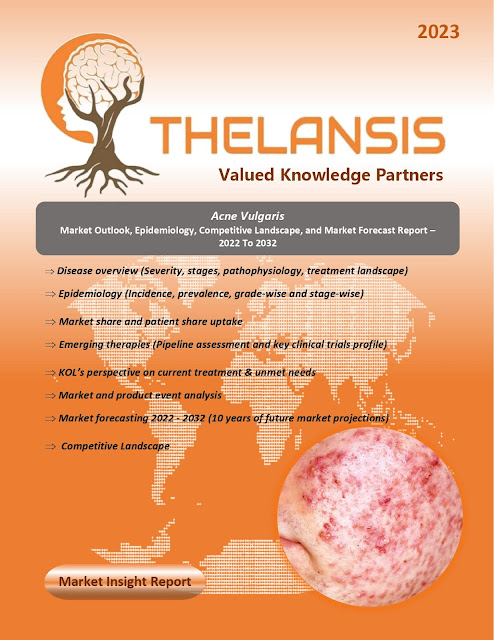CAR T-Cell Therapy Opportunity within Multiple Myeloma – Market Outlook, Epidemiology, Competitive Landscape, and Market Forecast Report – 2024 To 2034
CAR T-Cell Therapy Opportunity within Multiple Myeloma Market Outlook
Thelansis’s “CAR T-Cell Therapy
Opportunity within Multiple Myeloma Market Outlook, Epidemiology, Competitive
Landscape, and Market Forecast Report – 2024 To 2034" covers disease
overview, epidemiology, drug utilization, prescription share analysis,
competitive landscape, clinical practice, regulatory landscape, patient share,
market uptake, market forecast, and key market insights under the potential CAR
T-Cell Therapy Opportunity within Multiple Myeloma treatment modalities options
for eight major markets (USA, Germany, France, Italy, Spain, UK, Japan, and
China).
CAR T-Cell Therapy Opportunity within
Multiple Myeloma Overview
Multiple
myeloma (MM) is a complex hematologic malignancy characterized by the
uncontrolled proliferation of clonal plasma cells within the bone marrow. These
cells secrete large amounts of immunoglobulins and other non-functional
proteins. Being the second most common hematologic malignancy diagnosed, MM
presents a considerable challenge in terms of treatment. CAR T-cell therapy is
a promising approach for patients whose disease has relapsed or does not
respond to prior therapies. CAR T-cell therapy is a specialized treatment with
great potential for multiple myeloma patients. It involves genetic modification
of a patient’s T cells, enabling them to target and attack the multiple myeloma
cells using a specific protein called B-cell maturation antigen (BCMA). The
Food and Drug Administration (FDA) has approved idecabtagene vicleucel (Abecma)
for individuals with multiple myeloma who have not experienced positive
responses to at least four previous cancer treatments.
Geography coverage:
G8 (United States, EU5 [France,
Germany, Italy, Spain, U.K.], Japan, and China)
Insights driven by robust
research, including:
- In-depth interviews with leading KOLs and payers
- Physician surveys
- RWE analysis for claims and EHR datasets
- Secondary research (e.g., peer-reviewed journal
articles, third-party research databases)
Deliverables format and
updates*:
- Detailed Report (PDF)
- Market Forecast Model (MS Excel-based automated
dashboard)
- Epidemiology (MS Excel; interactive tool)
- Executive Insights (PowerPoint presentation)
- Others: regular updates, customizations, consultant
support
*As per Thelansis’s policy, we
ensure that we include all the recent updates before releasing the report
content and market model.
Salient features of Market
Forecast model:
- 10-year market forecast (2024–2034)
- Bottom-up patient-based market forecasts validated
through the top-down sales methodology
- Covers clinically and commercially-relevant patient
populations/ line of therapies
- Annualized drug-level sales and patient share
projections
- Utilizes our proprietary Epilansis and Analog tool
(e.g., drug uptake and erosion) datasets and conjoint analysis approach
- Detailed methodology/sources & assumptions
- Graphical and tabular outputs
- Users can customize the model based on requirements
Key business questions answered:
- How can drug development and lifecycle management
strategies be optimized across G8 markets (US, EU5, Japan, and China)?
- How large is the patient population in terms of
incidence, prevalence, segments, and those receiving drug treatments?
- What is the 10-year market outlook for sales and
patient share?
- Which events will have the greatest impact on the
market’s trajectory?
- What insights do interviewed experts provide on
current and emerging treatments?
- Which pipeline products show the most promise, and
what is their potential for launch and future positioning?
- What are the key unmet needs and KOL expectations for
target profiles?
- What key regulatory and payer requirements must be
met to secure drug approval and favorable market access?
- and more…



Comments
Post a Comment